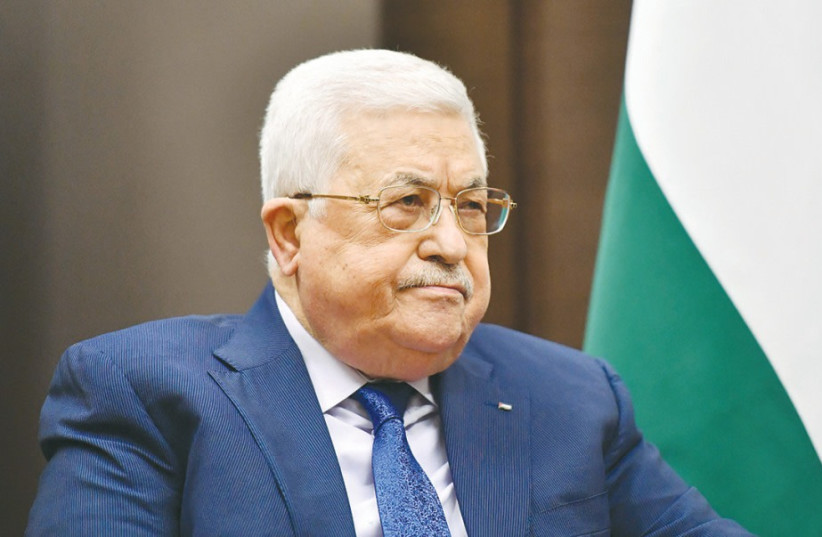Much has been spoken and written in speculation about “The Day After” the Hamas war.
What is the endgame for Israel, once – and if – its goals of vanquishing Hamas and securing the release of the more than 100 hostages still being held are achieved?
Prime Minister Benjamin Netanyahu said recently that it’s premature to talk about the day after until the day after, especially when the IDF is deep in its offensive against Hamas in Gaza, with casualties mounting on both sides.
However, that sounds like kicking the problematic can down the road, because the solutions might prove equally problematic, or create a crisis for his coalition, or between Israel and the US.
The steadfast support that Israel has received from President Joe Biden throughout the war is built upon the presumption that Israel and the US share a vision of post-Hamas Gaza. However, drastic divisions have been exposed in those visions. The US is pushing for a Palestinian Authority (PA)-led government in Gaza that will eventually lead to a Palestinian state in the West Bank and Gaza.
Netanyahu has made it clear that the PA, as it stands now with Mahmoud Abbas as its leader, with its policies of paying stipends to convicted terrorists and their families and teaching hatred of Israel in its schools, will not be handed Gaza.

The US is also adamant that the residents of Gaza must not be relocated outside of the Strip, even temporarily for their safety, in a stance that the international community backs as well as the neighbors that Israel has peace treaties with, Egypt and Jordan.
At the same time he has to deal with that dilemma, Netanyahu is trying to stave off the desires of members of his coalition and of his Likud Party, who have ideas of their own on what the day after should look like.
Finance Minister Bezalel Smotrich has been the most vocal, as he reiterated on Sunday his call for the Palestinians of Gaza to ‘voluntarily’ emigrate through an international plan and leave only a small minority behind.
“If in Gaza there will be 100,000 or 200,000 Arabs and not 2 million, the entire conversation on the day after will look different,” Smotrich said. “They [Palestinians] want to go. They have been forcibly held against their will in a ghetto for 75 years.”
He also joined Likud MK Taly Gotliv in calling for Israel to resettle northern Gaza.
“I don’t think there’s anyone in Israel who doesn’t want to see Jewish settlements everywhere,” Smotrich said. He said if Gaza were devoid of most Palestinians who were "growing up on the aspiration to destroy the state of Israel… most of Israeli society will say 'Why not, it's a nice place, let's make the desert bloom, it doesn't come at anyone's expense'."
To resettle or not to resettle?
Last week, Gotliv said at the Knesset plenum that Israel needs to resettle in Gaza to teach the Palestinians a lesson.
"How can I embarrass it [my enemy]? I can conquer and settle the northern Strip,” she said. "We can settle there, we can rebuild this country, bring it back to its former glory... occupation is not a dirty word."
The far-right cacophony from Netanyahu’s allies that diametrically clashes with the positions of the US, as well as the consensus within Israel, is likely why the prime minister is pushing off discussion of the day after, going so far as to postpone a war cabinet meeting on postwar arrangements for the Gaza Strip, a delay which has reportedly frustrated the Biden administration.
Decisions can be delayed, but eventually, Netanyahu will have to seriously lead a vigorous debate on how to rehabilitate a post-war Gaza that will enable its residents to rebuild their lives and keep Israel secure.
Minister of Innovation, Science, and Technology Ofir Kunis told KAN Radio on Monday that he thinks a consensus within the government can be achieved with principles being that Israel would establish a buffer zone of two-three kilometers inside Gaza and that a Palestinian state would not be established.
That’s a basis for talks and discussion, not the shoot-from-the-hip bluster of Smotrich and Gotliv. For the good of the country, its ties with the US, and its future unity, Netanyahu must rein in those loudmouths and face the huge challenges facing Israel and Gaza before the day after.
